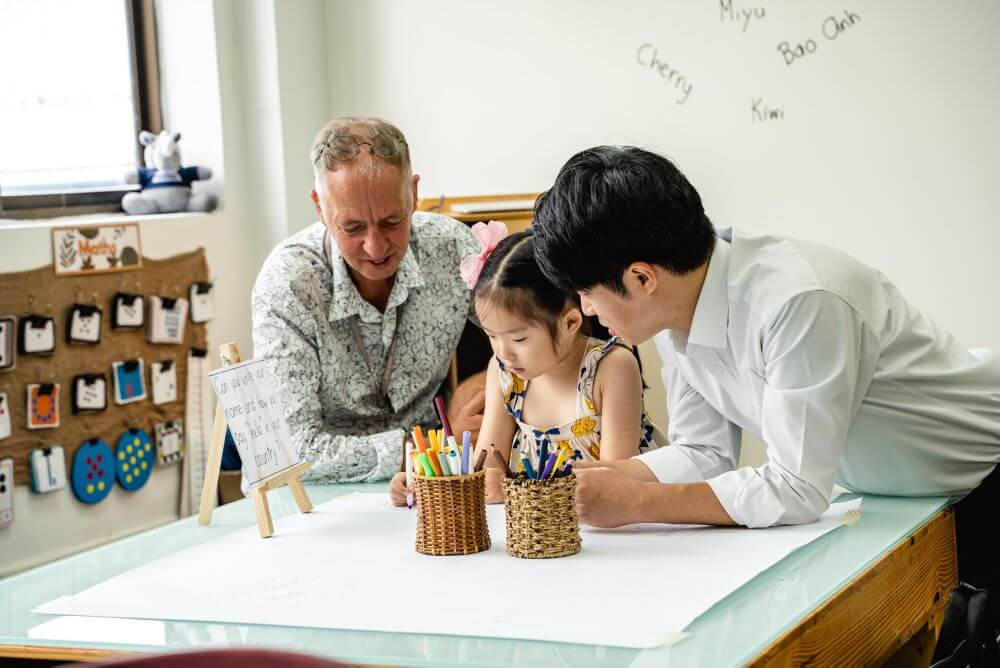Positive Effect of Changing Schools: Things Parents Should Do
Table of Contents
- Positive Effect of Changing Schools: Things Parents Should Do
- Don't miss out - reserve your spot today!
- What Defines a Positive School Environment?
- Positive Effects of Changing Schools
- Advice for Parents on Helping Your Kids Positively Adjust to School Transitions
- 1. Communicate openly and supportively with your child throughout the transition process
- 2. Encourage your child to participate in extracurricular activities to foster new friendships and interests
- 3. Familiarize yourself with the new school environment and engage with teachers and staff to support your child’s adjustment
- 4. Validate your child’s feelings and concerns while emphasizing the positive aspects of the change
- 5. Establish routines and schedules to provide stability and structure during the transition period
- Wrapping Up!
Embarking on the journey of attending a new school represents a significant transition, filled with numerous learning opportunities. It encompasses more than just the development of new friendships; it’s a period of adapting to change, adopting new perspectives, and advancing both educationally and personally.
In this guide, we’ll explore the positive effects of changing schools and provide valuable advice for parents to help their kids navigate these transitions successfully.
Don't miss out - reserve your spot today!
To register for “IB PYP Math with ISHCMC Students”, please fill in the form below.
"*" indicates required fields
What Defines a Positive School Environment?
A positive school environment is where everyone feels safe, supported, and encouraged. It promotes a students’ academic achievement and helping them develop their personal lives in a nurturing and inclusive setting.
A positive environment is characterized by a number of critical elements that work together. Here are some key aspects:
- Safety and Inclusion: Everyone within the school community feels safe, included, and accepted. This sense of security fosters a positive environment where students, teachers, and families can thrive.
- Promotion of Positive Behaviors: Active efforts are made to promote positive behaviors and interactions. Respect, kindness, and cooperation are encouraged, creating a harmonious atmosphere.
- Equity and Inclusive Education: The school ensures all students have the same chances and appreciates everyone’s differences.
Positive Effects of Changing Schools
Changing schools can have several positive effects on students, especially when the transition is smooth and well-supported, leading to various positive outcomes for students and helping them grow and develop in multiple ways. Let’s go through some key positive effects:
1. Changing School Helps Students Increase Adaptability
Changing schools can undoubtedly have a significant positive impact on students’ adaptability skills. It exposes them to novel environments and situations, which can be both challenging and rewarding.
For instance, when students change schools, they often face the hurdle of adapting to a new group of classmates with different personalities and backgrounds.
Nonetheless, as the student masters the art of engaging with and befriending new classmates, they cultivate adaptability skills. These skills are crucial for building relationships and confidently maneuvering through various social settings, enabling the student to thrive in diverse and unfamiliar environments.

2. Changing School Helps Students Broaden Perspectives
When students switch schools, they get the chance to expand their horizons by interacting with peers from different cultures, backgrounds, and perspectives. This interaction enables students to gain a deeper understanding of the world around them.
By meeting classmates from diverse cultural backgrounds, students are exposed to new traditions, languages, and viewpoints. This exposure helps students develop a broader perspective that enriches their personal growth and enhances their ability to connect with others.
3. Changing School Helps Student Grow Their Academic Skills
Changing schools can also contribute to the growth of student’s academic skills by providing access to new educational opportunities and resources. Students exposed to different teaching styles, curriculum structures, and learning experiences can develop a more versatile approach to learning.
For example, transitioning from a traditional classroom setting to an international school requires students to adjust to a more self-directed learning approach. This adaptation fosters academic flexibility, enhances problem-solving skills, and will excel in diverse educational settings.
4. Changing School Helps Student Grow Their Personal Skills
In addition to academic growth, changing schools can help students develop essential personal skills that contribute to their overall well-being.
Students who transition between schools often experience an increase in self-confidence, independence, and self-reliance. This process of adapting to new environments and building relationships fosters personal growth and resilience.
Furthermore, changing schools can provide students with opportunities to discover new interests, talents, and strengths, leading to a more well-rounded and confident sense of self. For example, moving to a school with great art could spark a newfound love for painting or music.

ISHCMC offers “ISHCMC Buddy Program” to support new students to quickly adapt to a new environment
5. Changing School Helps Students Grow Their Social and Emotional Skills
When students transition to a new school, it can significantly impact their social and emotional growth. For instance, when students change schools, they must learn to navigate unfamiliar social dynamics and establish connections with a new group of peers.
Through this process, they engage with a diverse range of classmates, enhance their communication skills, collaborate on projects, and learn to resolve conflicts constructively.
These experiences expand their social adaptability and improve their ability to interact positively with others in various social contexts, promoting empathy and understanding.
Advice for Parents on Helping Your Kids Positively Adjust to School Transitions
During school transitions, parents are instrumental in guiding their children through the adaptation phase. Here’s an in-depth look at each piece of advice for parents:

1. Communicate openly and supportively with your child throughout the transition process
Encourage your child to express their feelings about the new school and listen attentively. Open communication helps identify and address any concerns or anxieties they may have, fostering a supportive and understanding environment. Parents should:
- Listen actively.
- Validate their emotions.
- Provide reassurance that you are there to support them every step of the way.
2. Encourage your child to participate in extracurricular activities to foster new friendships and interests
Motivate your child to get involved in clubs, sports, or other activities of interest. This involvement can be a gateway to forming new friendships, developing new skills, and enhancing their sense of belonging in the new school environment.
3. Familiarize yourself with the new school environment and engage with teachers and staff to support your child’s adjustment
By getting to know the school, what it teaches, and how it helps students, you can help your child adjust to the new place. Engage with your child’s teachers and school staff to stay informed about their academic progress and school life. Attending school events and participating in parent-teacher meetings can provide insights into your child’s environment and how they are adjusting.

Building good relationships with teachers and staff can also help your child feel more comfortable during this change.
4. Validate your child’s feelings and concerns while emphasizing the positive aspects of the change
When your child is transitioning to a new school, it’s important to understand and acknowledge their emotions. No matter if they’re feeling excited, anxious, or unsure, encourage them to talk about their concerns and fears.
You can help them feel better by highlighting the potential benefits and opportunities that come with the change. Focus on the positive aspects of this new experience to boost their confidence.
5. Establish routines and schedules to provide stability and structure during the transition period
During times of change, it is important to maintain consistency and structure for children. One way to achieve this is by establishing daily routines that include:
- Set meal times
- Study schedules
- Bedtime routines
By doing this, you can provide stability and predictability for your child, which can create a sense of security and normalcy amidst the transition. This, in turn, can help your child adjust more smoothly to their new school environment.
Wrapping Up!
In summary, transitioning to a new school can significantly influence a child’s personal and developmental growth. Recognizing the positive impacts of school changes, like improved adaptability and expanded viewpoints, and providing active support can facilitate a smooth and beneficial adjustment for the child.
Parents are encouraged to fully engage in their child’s experience of changing schools, offering them the tools to prosper in novel settings. By maintaining involvement, fostering open dialogue, and nurturing their development, parents can play a pivotal role in guiding their children through this transformative phase, ensuring they emerge more resilient and prepared for future challenges.
At the International School Ho Chi Minh City, we believe that the impact of a good school extends well beyond academic achievements. By providing a supportive and enriching environment, we are committed to nurturing students who are not only knowledgeable but also empathetic, resilient, and prepared to make a positive difference.





